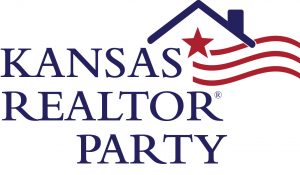 SB 22 – Itemized Deductions
SB 22 – Itemized Deductions
SB 22 is a large tax bill containing a priority issue for KAR, which changes Kansas tax law to allow Kansas taxpayers the ability to take state-level itemized deductions regardless of whether they itemize or take the standard deduction federally. (For more information, visit www.protectthededuction.com).
This change is necessary in light of the federal tax reform of 2017 that doubled the federal standard deduction. Kansas requires taxpayers who take the standard deduction on their federal return to take the less generous state-level standard deduction. If the Legislature does not pass legislation to make this fix, most Kansas taxpayers who have previously benefited from state itemized deductions (mortgage interest, property taxes, charitable contributions and medical expenses) will lose their deductions and face a higher state income tax liability.
The bill has been passed on to the Governor for signature, veto or to become law without signature. At this point, it is expected the Governor will veto the legislation.
The Governor’s veto will likely trigger a state-level call for action from KAR. Our argument going forward will be that the Legislature will need to go back to the table, put policy before politics and craft a tax bill, including the itemized deduction provisions, that the Governor would agree to sign.
SB 168 – Home Inspector Regulation
This year, KAR has pursued re-enactment of law regulating the home inspector industry. KAR has received many reports of home inspectors currently operating in the state that are not qualified to assist consumers and are providing unqualified and unprofessional advice to consumers in the very important and costly home-buying process.
In order to protect consumers, we are advocating for legislation that would ensure that those individuals holding themselves out to be home inspectors have adequate education, training and experience to assist the consumer in the home buying process.
Instead of a licensure model as introduced in SB 168, we have been working with Senators and stakeholders on a registration approach modeled off of the Kansas Roofer Registration Act.
KAR is discussing this alternative with Senators and hope that legislation achieving this consensus will advance this Session.
HB 2147 Rural Housing Incentive Districts
Rural communities across Kansas are facing housing shortages. The Rural Housing Incentive District Act provides cities and counties with a tool to encourage developers to build housing in rural communities by assisting in the financing of infrastructure.
Currently the financing of these projects is limited to 15 years. By extending the time period for financing to 25 years, we believe more housing project will be viable in rural communities and housing within the developments will be more affordable. HB 2147 passed the Kansas House 123-0 earlier in the Session and has had a hearing in Senate Commerce. KAR is working with the Senate committee to advance this legislation to the full Senate.
SB 60 – Broker Experience Requirements
KAR supports updating licensure requirements for brokers from time to time as periodic enhancements are needed to maintain the credibility of our industry, protect consumers who interact with real estate licensees, and keep pace with a rapidly evolving industry.
KAR has worked with KREC for several years in studying what if any updates are needed to our licensing act. KREC appointed a task force in 2018 to specifically consider any changes needed to our broker licensing law. KAR members participated on the task force and KAR supports the work product (SB 60) resulting from those discussions.SB 60 has passed the Kansas Senate (40-0) and has passed out of the House Commerce, Labor and Economic Development Committee. The next step is floor action in the House.
The Session remains fluid, but KAR has seen positive movement on priority issues. As the Session continues, KAR will work diligently to advance issues that are important to REALTORS® and to defeat legislation that threatens the real estate industry.





